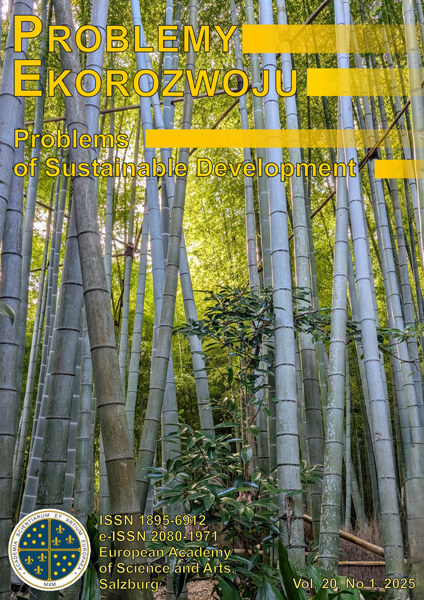Prawo ochrony środowiska a zatrudnienie: ocena Ustawy o zapobieganiu zanieczyszczeniu i kontroli jakości wód w Chinach
Wei Yu
School of Management, Nanchang University, Nanchang, 330031, China; Copernicus Institute of Sustainable Development, Utrecht University, Heidelberglaan 2, 3584 CS Utrecht, The Netherlands (Chiny)
Xiao Liu
yilvqingxin@163.comSchool of Economics & Management, Tongji University, Shanghai, 200092, China (Chiny)
Abstrakt
W tym artykule analizujemy wpływ środowiskowych regulacji prawnych na zatrudnienie w Chinach. Przygotowaliśmy eksperyment odnoszący się do poprawionej Ustawy o zapobieganiu zanieczyszczeniom wody i kontroli jakości wód z 2008 r. (WPPCL2008) i przeanalizowaliśmy reakcję na zmienione prawo ze strony sektora produkcyjnego korzystając z metody DID (differences-in-differences), uwzględniając 35 sektorów występujących w Chinach i 2-cyfowy poziom pomiędzy 2003 a 2014 r. Otrzymane rezultaty pokazują, że surowe regulacje środowiskowej nie są wolne od kosztów. Co więcej, okazuje się, że są one sprzeczne z poglądem, że chińskie prawodawstwo jest nieistotne.
Słowa kluczowe:
prawo ochrony środowiska, DID, zatrudnienie, Ustawa o zapobieganiu zanieczyszczeniom wody i kontroli jakości wódBibliografia
ALLERS M.A., HOEBEN C., 2010, Effects of unit-based garbage pricing: a differences-in-differences approach, in: Environmental and Resource Economics 45, p. 405-428.
Google Scholar
AMBEC S., COHEN M.A., ELGIE S., LANOIE P., 2013, The Porter hypothesis at 20: can environmental regulation enhance innovation and competitiveness? in: Review of Environmental Economics and Policy 7 (1), p.2-22.
Google Scholar
BEZDEK R.H., WENDLING R.M., 2005, Potential Long-term Impacts of Changes in US Vehicle Fuel Efficiency Standards, in: Energy Policy 33(3), p.407-419.
Google Scholar
DESCHENES O., 2010, Climate Policy and Labor Markets, in: NBER Working Paper No. w16111.
Google Scholar
CURTIS M., 2012, Who loses under power plant cap-and-trade programs? Estimating the impact of the NOx Budget Trading Program on manufacturing employment, in: Working Paper, Georgia State University.
Google Scholar
HAFSTEAD M.A.C., WILLIAMS III.R.C., 2016, Unemployment and Environmental Regulation in General Equilibrium, in: Resources for the Future Discussion Paper, P. 15-11.
Google Scholar
HARRISON R., JAUMANDREU BALANZO J., MAIRESSE J., PETERS B., 2014, Does in-novation stimulate employment? A firm-level analysis using comparable micro-data from four European countries, in: International Journal of Industrial Organization 35, p. 29-43.
Google Scholar
HAWAWINI G., SUBRAMABIAN V., VERDIN P., 2003, Is performance driven by industry – or firm-specific factors? A new look at the evidence, in: Strategic Management Journal 24, p.1-16.
Google Scholar
HORBACH J., RENNINGS K., 2013, Environmental innovation and employment dynamics in different technology fields-an analysis based on the German Community Innovation Survey 2009, in: Journal of Clean Production 57, p. 158-165.
Google Scholar
KAHN M.E., MANSUR E.T., 2013, Do Local Energy Prices and Regulation Affect the Geographic Concentration of Employment? in: Journal of Public Economics 101(1), p. 105-114.
Google Scholar
LACHENMAIER S., ROTTMANN H., 2011, Effects of innovation on employment: a dynamic panel analysis, in: International Journal of Industry Organization 29, p.210-220.
Google Scholar
MOULTON B.R., 1990, An illustration of a pitfall in estimating the effects of aggregate variables on micro units, in: Review of Economics and Statistics 72(2), p.334-338.
Google Scholar
NUNN N., QIAN N., 2011, The Impact of Potatoes on Old World Population and Urbanization, in: Quarterly Journal of Economics 126(2), p.593-650.
Google Scholar
PAVITT K., 1984, Sectoral patterns of technical change: towards a taxonomy and a theory, in: Research Policy 13, 343-373.
Google Scholar
RENNINGS K., ZIEGLER A., ZWICK T., 2004, The effect of environmental innovations on employment changes: an econometric analysis, in: Business Strategy and Environment 13, p. 374-387.
Google Scholar
WALKER R., 2012, The Transitional Costs of Sectoral Reallocation: Evidence From the Clean Air Act and the Workforce. in: US Census Bureau Center for Economic Studies Paper No.CES-WP-12-02.
Google Scholar
WANG H., JIN Y., 2007, Industrial Ownership and Environmental Performance: Evidence from China, in: Environmental and Resources Economics 36, p.255-273.
Google Scholar
WANG H., MAMINGI N., LAPLANTE B., DASGUPTA S., 2003, Incomplete Enforcement of Pollution Regulation: Bargaining Power of Chinese Factories, Environmental and Resource Economics 24(3), p.245-262.
Google Scholar
WEI Y., QIANG C.H., 2015, Environmental regulations and industrial performance: evidence from the revision of Water Pollution Prevention and Control Law in China, in: Problemy Ekorozwoju/ Problems of Sustainable Development 10(1), p. 41-48.
Google Scholar
Autorzy
Wei YuSchool of Management, Nanchang University, Nanchang, 330031, China; Copernicus Institute of Sustainable Development, Utrecht University, Heidelberglaan 2, 3584 CS Utrecht, The Netherlands Chiny
Autorzy
Xiao Liuyilvqingxin@163.com
School of Economics & Management, Tongji University, Shanghai, 200092, China Chiny
Statystyki
Abstract views: 27PDF downloads: 10
Licencja

Utwór dostępny jest na licencji Creative Commons Uznanie autorstwa – Na tych samych warunkach 4.0 Miedzynarodowe.




